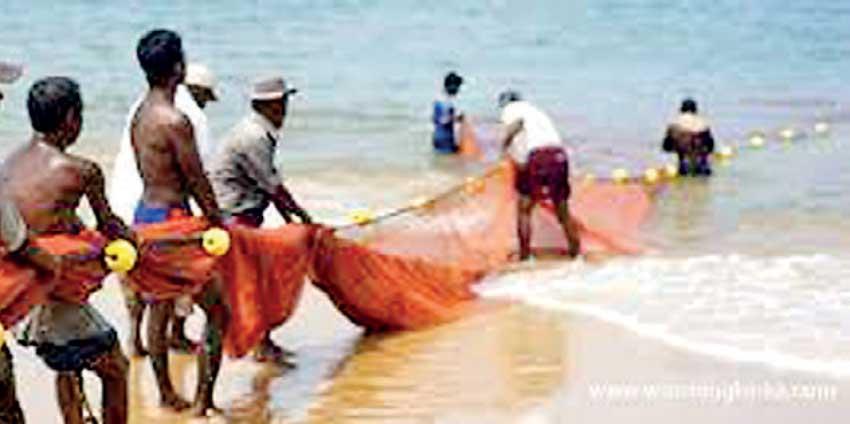05 Mar 2022 - {{hitsCtrl.values.hits}}

Uplifting Sri Lanka’s challenged fisheries sector needs renewed thinking and approaches to unleash its full potential and increase contribution to exports and GDP, the World Bank said this week.
The industry, which has a long way to go in terms of adopting sustainable practices, is in need of new knowledge, innovative thinking, and close coordination between the public and private sectors.
“These are crucial to realizing this potential,” said WB Country Director of Sri Lanka, Maldives, and Nepal Faris Hadad-Zervos.
“The fisheries sector has the potential to make Sri Lanka competitive in the global markets and to increase jobs, food security, and export earnings in a sustainable manner for the benefit of local communities,” said the WB Sri Lanka chief yesterday while presenting the findings of a report that is targeted towards improving Sri Lanka’s fisheries sector.
The report called for green, resilient and inclusive development of fisheries, with a special focus on coastal fisheries, coastal aquaculture, multi day fisheries, food security, and jobs and livelihoods.
The recommendations are the outcome of a high-level policy dialogue that was held between the government and the World Bank.
At present the local fisheries sector is challenged due to overfishing, declining fish stocks, and degradation of coastal ecosystems due to habitat destruction and pollution. It is also severely hit from the impacts of climate change.
Addressing threats and realising opportunities require sustainable management. The WB said this is key to ensuring Sri Lanka’s food security and meeting the high domestic demand for fish.
Policy recommendations from the WB include smart management of the declining fish stocks, which can be implemented if the fisheries management plan is based on regular data collection of fish stocks.
Changing unsustainable fishing practices is also critical, the WB said.
Another key policy recommendation is the need to urgently address the habitat destruction and pollution, which needs to be tackled with conservation approaches.
Fisheries contribute significantly to livelihoods and food security in Sri Lanka. Coastal and marine fisheries provide full- or part-time direct or indirect employment to some almost one million people and support the livelihoods of another 3.6 million Sri Lankans.
At the same time, the sector’s contribution to gross domestic product (GDP) and export revenues is modest. In 2019, these were only 1.9 percent and 1.5 percent.
15 Nov 2024 6 hours ago
15 Nov 2024 7 hours ago
15 Nov 2024 8 hours ago
15 Nov 2024 8 hours ago
15 Nov 2024 9 hours ago